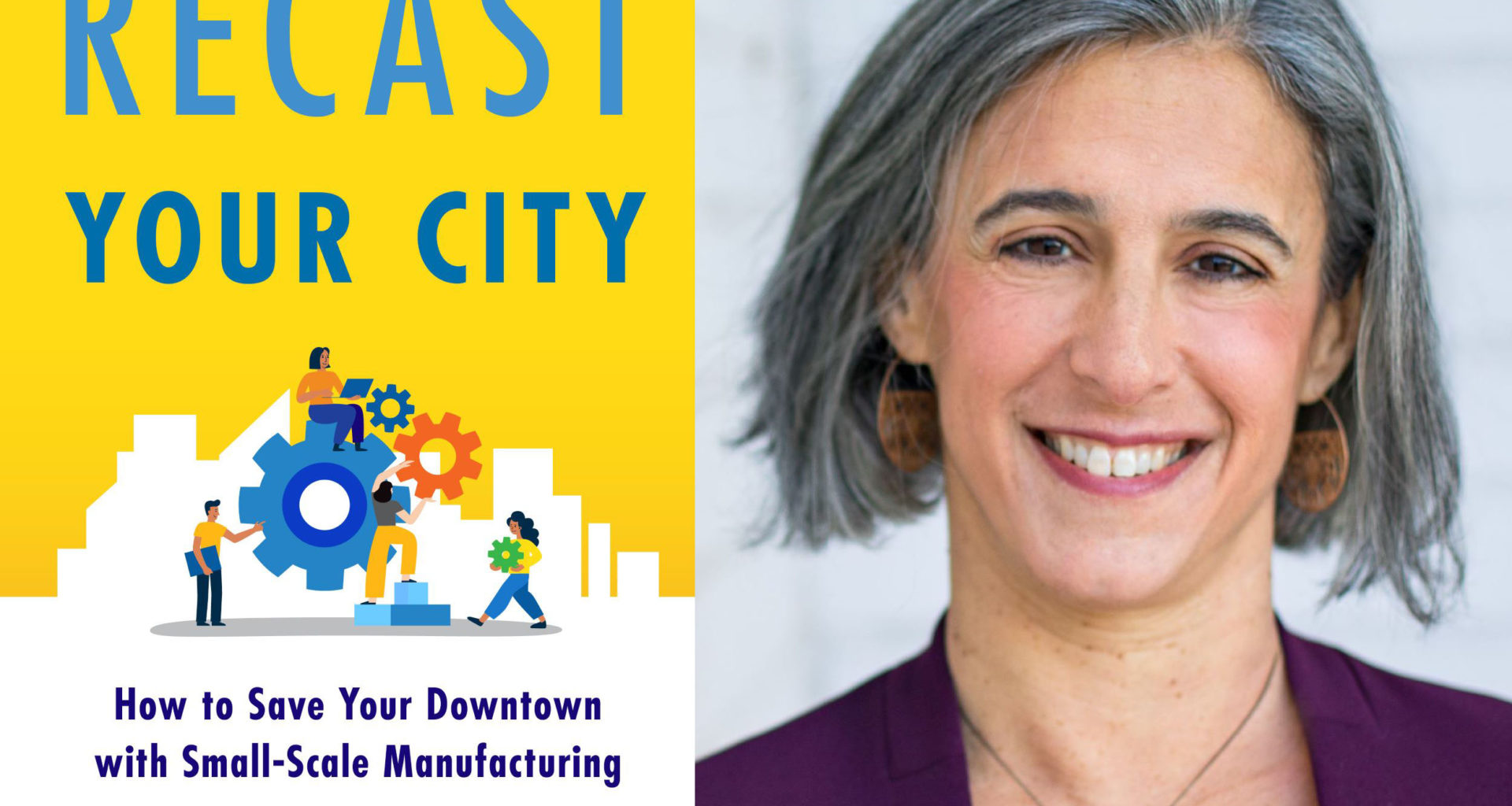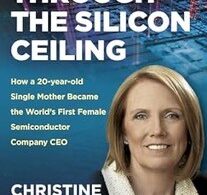Excerpt from Recast Your City: How to Save Your Downtown with Small-Scale Manufacturing by Ilana Preuss. Copyright © 2021 Ilana Preuss. Reproduced by permission of Island Press, Washington, D.C.
The Secret Sauce: Small-Scale Manufacturing
Small-scale manufacturing businesses create a tangible product—in any material—that can be replicated or packaged; my catch all is “hot sauce, handbags, and hardware.” The business can be all about technology (for example, a supply chain business that uses 3D printers to supply parts for the Department of Defense) or can be artisan (for example, a consumer-facing business that handcrafts leather handbags). It can be food-based (beer or chocolate anyone?), or it can be food material-based (all-natural lotions). It can sell direct to consumers, sell wholesale to retailers, or sell into business-to-business supply chains.
Such businesses are considered small scale because of their number of employees and the amount of space they need. Small-scale manufacturing businesses have fewer than fifty employees; most of the time, they have fewer than twenty. Their space needs are smaller, too; they generally need less than 5,000 square feet of space, and most need less than 1,000 to 2,000 square feet. They can operate in storefronts and smaller spaces that are not considered “manufacturing,” and in general large, distant, industrial spaces don’t serve their needs because of their small space requirements. In addition, these businesses are modern manufacturing and are most often quiet, clean, and great neighbors.
Small-scale manufacturing businesses help us create thriving places, with business ownership opportunities and good-paying jobs that other business types cannot fulfill. They are the hidden gems in the economic development strategy and downtown reinvestment efforts of every place (yes, I really mean every place).
Small-scale manufacturing businesses help us create thriving places, with business ownership opportunities and good-paying jobs that other business types cannot fulfill.
You already have some type of small-scale manufacturing business in your community, and as you learn more about these businesses in this book, you may start to notice them. One example is Katie Stack’s shop, Stitch & Rivet in Northeast Washington, DC. There, you can walk in and see three employees busy at their sewing machines. Little pieces of leather are neatly piled in the table corners, and the sound of the machines makes the air hum with activity. The front of the small shop is filled with Stack’s leather and waxed canvas bags alongside items from complementary producers—some jewelry, funny gift cards, and other small items that round out the shop. It is easy to see all the activity because this business is in an 800-square-foot micro-storefront alongside other small producers in a real estate development project called the Art Walk at Monroe Street Market, NE.
Stitch & Rivet is one of a few dozen shops along this walkway. These businesses are an essential part of what makes this project work: they fill a pedestrian walkway with active storefronts that you can’t find anywhere else in the city.
These kinds of product businesses—called small-scale manufacturing—are a critical part of what makes local real estate and economic development work. I often call them hidden gems because they are in every community. The owners are working hard, with their heads down, and are rarely brought into discussions about downtown and business development opportunities, yet they are essential engines to local economies.
Community wealth building
Today, the power and energy behind local small business are more important than ever. Local efforts to buy from small businesses exploded during the COVID-19 shutdowns, bringing more and more people to focus on the importance of these businesses as the backbone of our local economies. Small-scale manufacturing businesses expand this opportunity.
Residents are proud to see these businesses create and sell products. The product businesses can access a strong local market alongside a global market through the internet. As more people gravitate toward unique and custom products online, artisan businesses grow in power, and dollars spent on them are increasing. The power to build community wealth pairs with the national interest in unique products, allowing these business owners to bring revenue into the community from far away. Local residents can use their skills, be business owners, build community wealth, and retain what is special about the neighborhood’s culture with these businesses.
More economic opportunity
Small-scale manufacturing businesses can make a major difference to help more people create economic opportunities, regardless of education or background. This business sector often includes many people who have been excluded from opportunities in the past. Someone who has an entrepreneurial spirit and the ability to make something can become a business owner; they just need the right support and the right space in town to become a thriving addition to the business community. Small-scale manufacturing businesses are found in every part of our communities and include people across racial, ethnic, immigrant, and income types. This kind of entrepreneurship can help families create economic opportunity for themselves and the people around them. Small-scale manufacturing businesses often hire from within the community and on average pay 50 to 100 percent more than retail or service jobs.






